On September 11, 1973, democratically elected socialist president Salvador Allende committed suicide as his military bombarded El Palacio de la Moneda with airstrikes. Later that same day, General Augusto Pinochet took full control of the Chilean government, dismantling major news sources, establishing a national curfew (for 14 years), and arresting, torturing, exiling, and assassinating thousands of dissenters. Pinochet’s repressive regime lasted longer than the vast majority of Latin American military dictatorships, finally returning to a democratically elected president in 1990 (although Pinochet remained leader of the military until at least 1997). The kicker? The United States supported the coup. The reasoning? Well, there was the whole Cold War part of it. Nixon didn’t really feel comfortable having his southern hemisphere slowly shift to the left, especially after the disaster that was Cuba. But perhaps even more importantly, Allende was a president for his people–not for US interests. He nationalized key industries, particularly copper, which hurt major US corporations (which, before this reform, had been exploiting Chilean minerals essentially for free. For more information, read “The Open Veins of Latin America” by Galeano). And the results of this economic and political “solution?” 2,279 (acknowledged) killed; 40,018 (acknowledged) arrested and tortured; and thousands missing and exiled.
Perhaps, like me, you already knew all of this. I took a course on democratic development last fall, and wrote my final paper on the fall of the Pinochet regime. After reading hundreds of pages about the dictatorship, I had a pretty solid grasp on the basic statistics of the dictatorship. But you know how, even after you learn all about the Holocaust in AP World History, you don’t really get it until you visit the Holocaust Museum in D.C.? That’s how we felt on our “Jornada de Derechos Humanos” (literally, “day trip of human rights”) this week with SIT. We visited cemeteries and memorials and museums, watched horrific videos, heard personal stories of the era. You don’t really understand the numbers until you see a victim’s guitar hanging in the Museo de la Memoria y los Derechos Humanos, or learn that some of the victims were as young as 8 years old at the memorial in the general cemetery, or hear the president of La Agrupación de Familiares de los Detenidos Desaparecidos explain how her father was assassinated by Pinochet. And you can’t understand the controversy behind the reconciliation until you sit at a family barbecue and hear your host “grandmother” talking about how her brother was the personal chauffeur for Pinochet, and how the coup was a necessity due to problems with the Allende regime. The dictatorship is not necessarily “history” quite yet for Chileans. Most of the population lived through the dictatorship–I asked my host mom what she remembers, and all she told me was that everyone was afraid. And that they’re still afraid. This Wednesday marks the 40th anniversary of the military coup, and, just as we in the United States are fighting what seems like an endless war over our own September 11th, Chileans are continuing to fight for truth and justice over the horrors that occurred during the Pinochet regime. Because Pinochet is still very much a lasting remnant within Chilean governance and policy.
La Agrupación de Familiares de los Detenidos Desaparecidos continues to fight for the family members that remain missing.
This plot was purchased at the Santiago General Cemetery for those who do not have a body to bury.
“The museum is a school. The artist learns to communicate; the public learns to make connections.”
“The forgetting is filled with memory.” The names of those tortured at the VIlla Grimaldi detention center.
On a lighter note, we watched our first “marcha estudiantil” last Wednesday morning. Although it is technically against SIT rules for us to participate in public demonstrations, especially due to the repressive tactics that the Chilean carabineros sometimes like to use against protestors, our director reminded us that we could certainly be “participatory observers.” We took full advantage of this loophole, and relished in the passion that is Chilean youth. (But actually, if the Chilean government is reading this, we didn’t participate, we really just watched.) Those who lived through the Pinochet dictatorship still have a reason to fear the government–but those who never knew Pinochet except for in their history textbooks have no qualms about showing their true feelings about government policies. The graffiti that covers ever edifice in Santiago is not necessarily gang-related–most of it expresses passionate political beliefs (often of an anarchist nature). There is passion here, and passion with a purpose. The purpose last Wednesday was to dismantle the current education system (set up during the Pinochet regime) which views education as an economic market. While competition between schools might sound like a viable option, here, it has turned into a tool for economic stratification, as those with money choose to go to the state-subsidized or completely private schools, as opposed to free public schools. Success comes to those who can afford it–and the youth crave change.

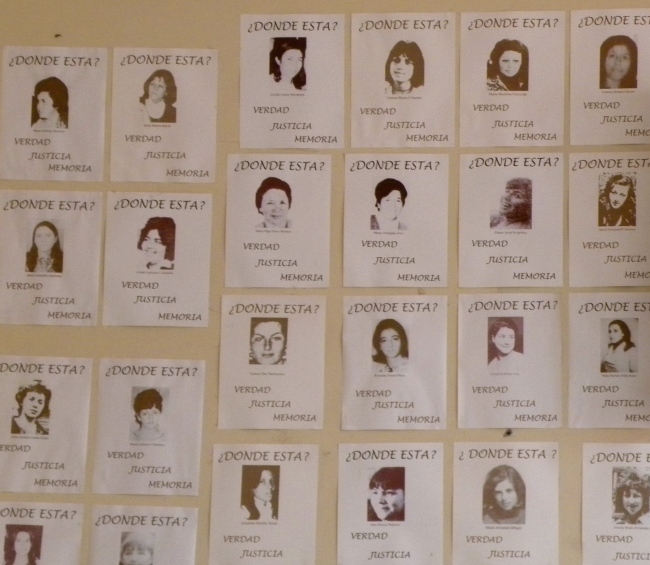
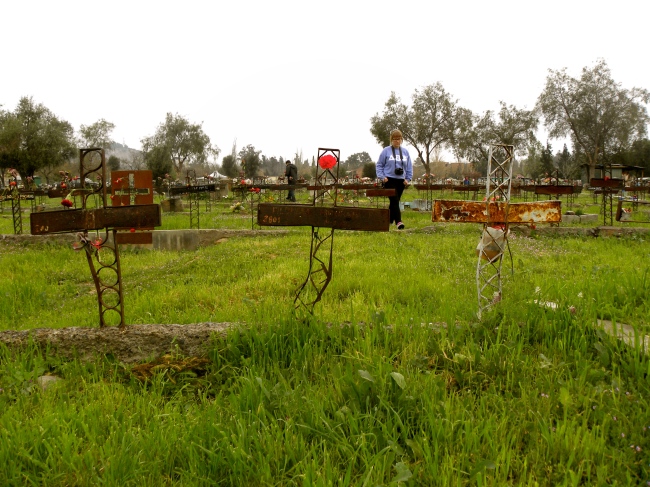
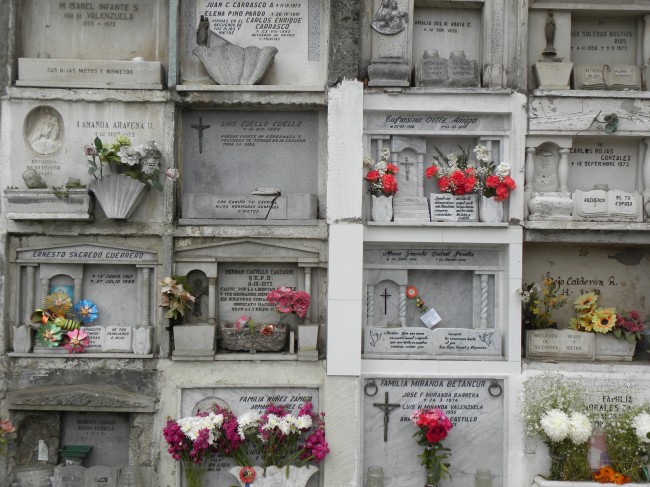
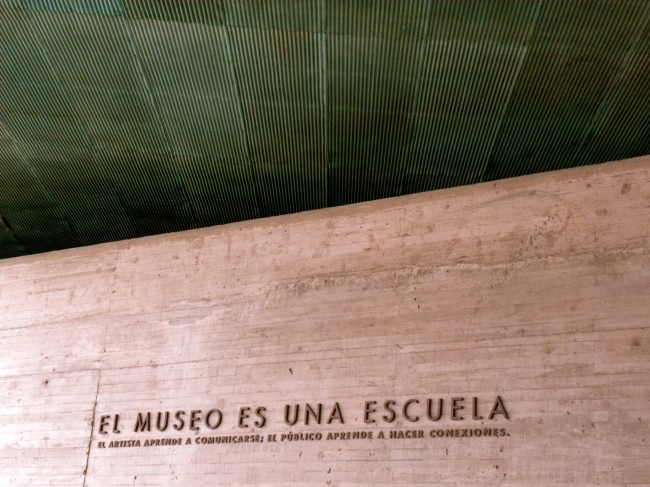
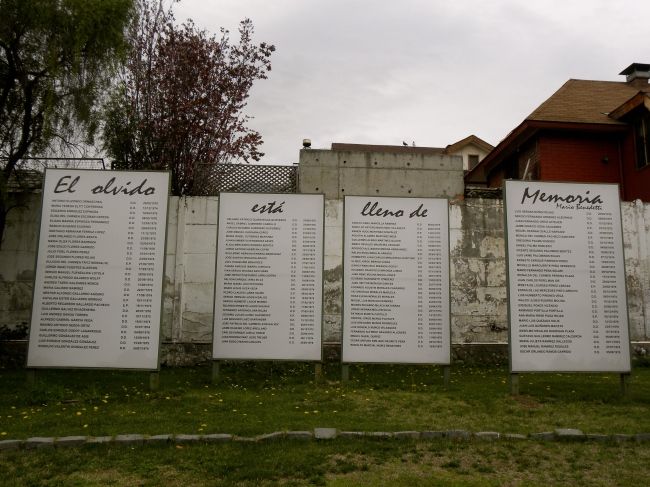
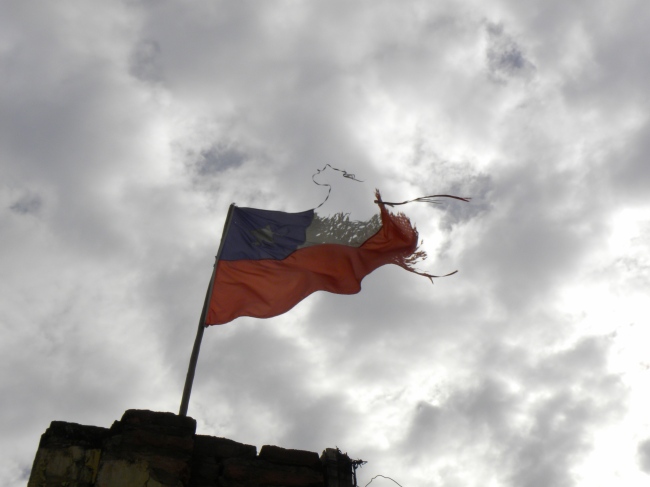
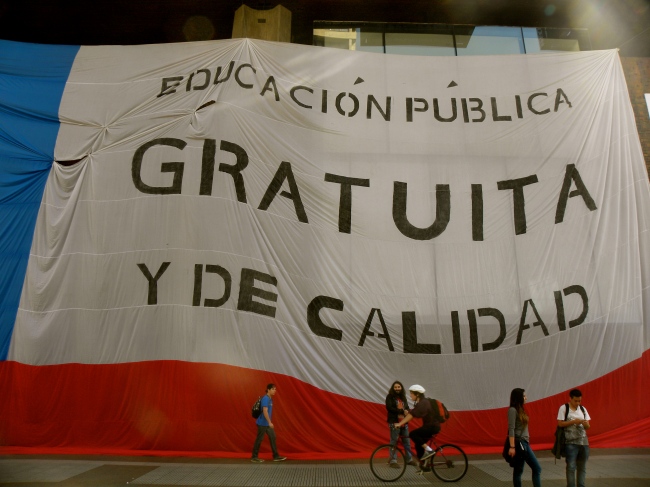
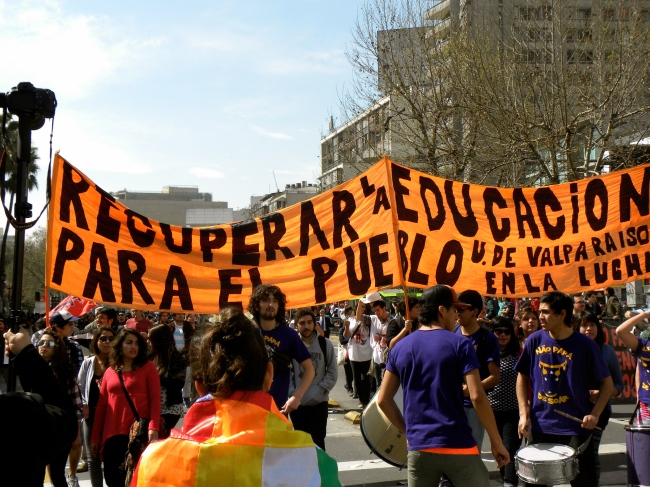
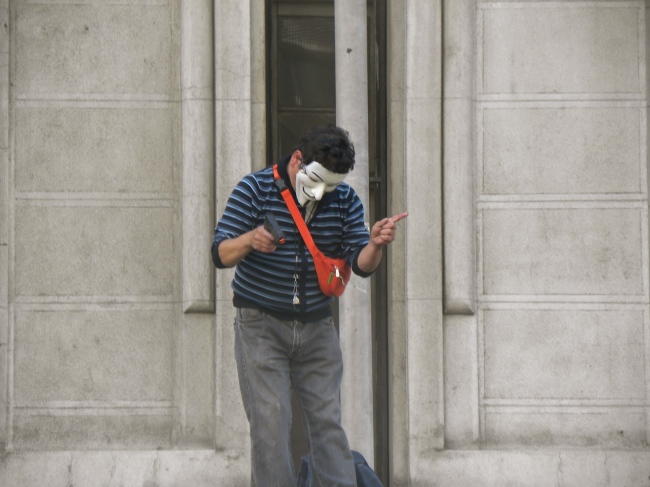
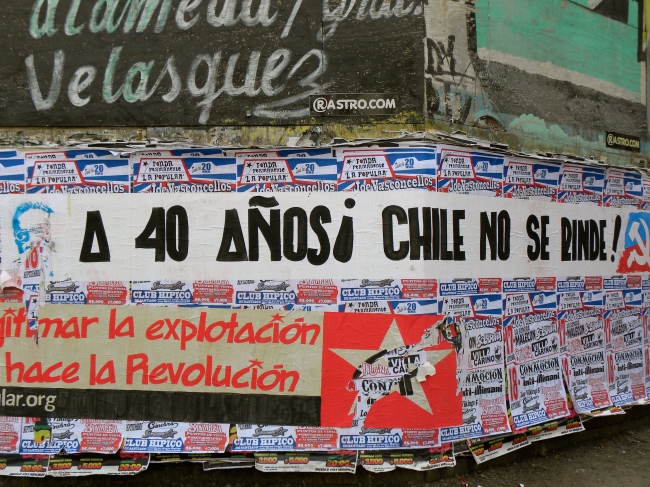
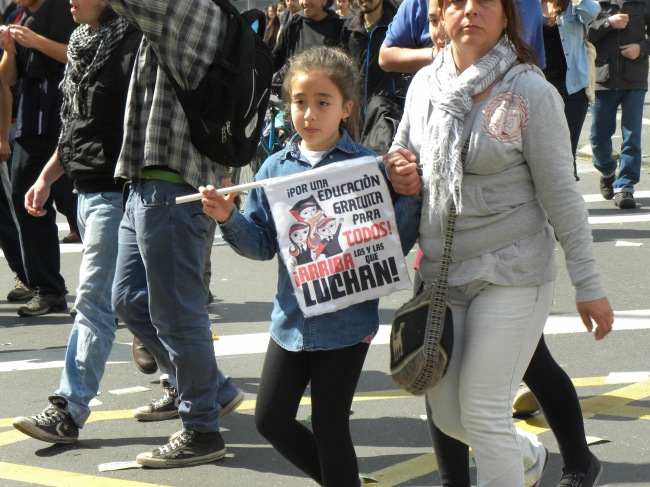

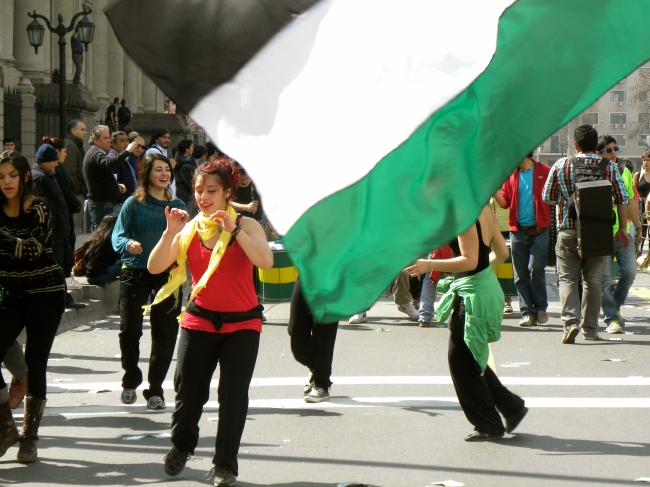
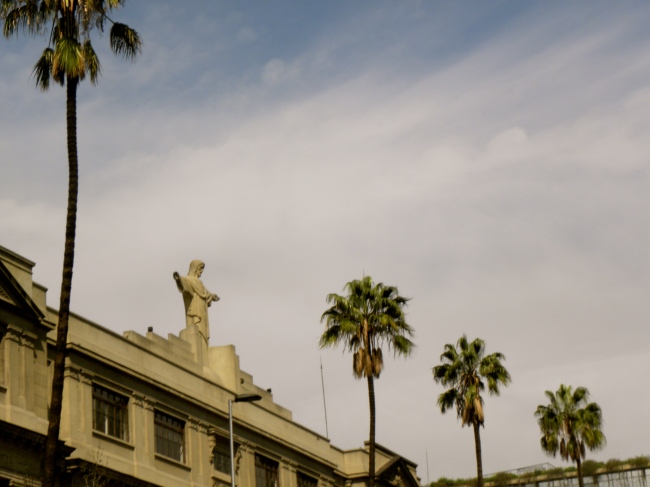
Brava, again.
Why I write: http://www.progressive.org/eduardo-galeano
Click to access Open_Veins_of_Latin_America.pdf